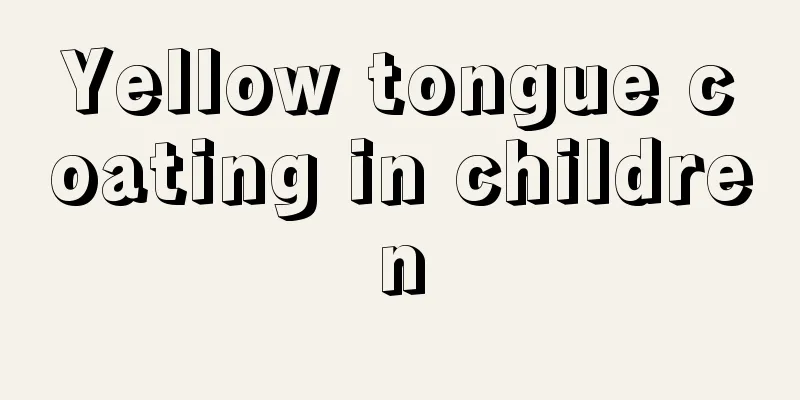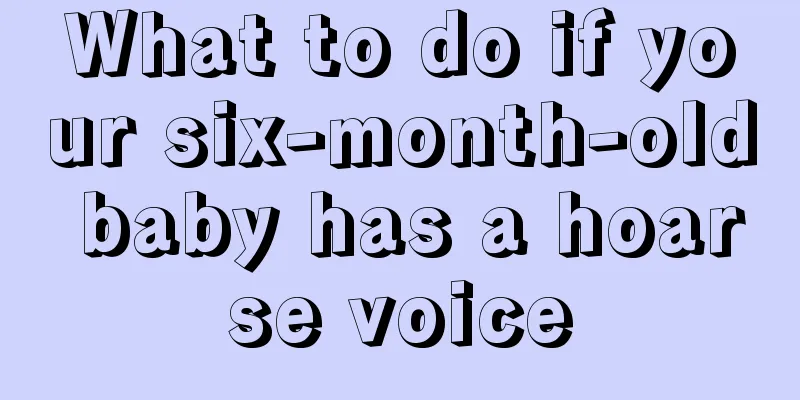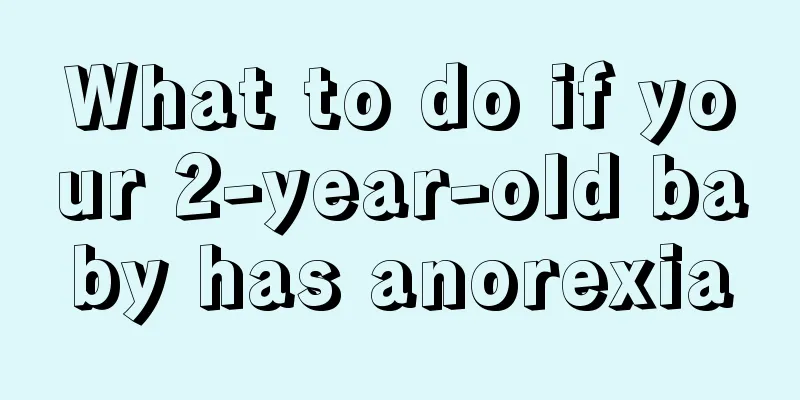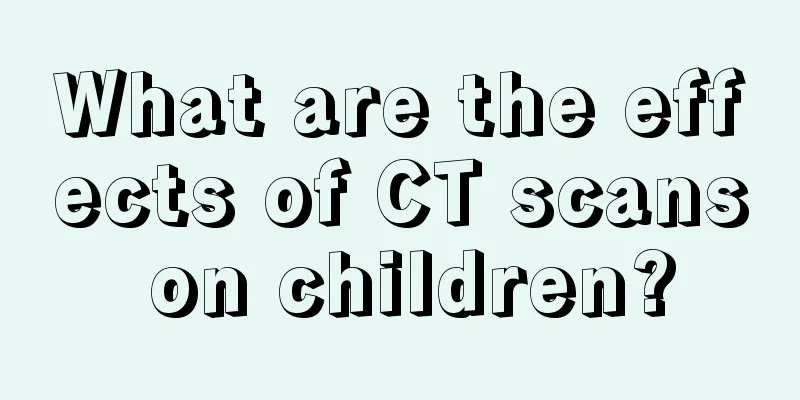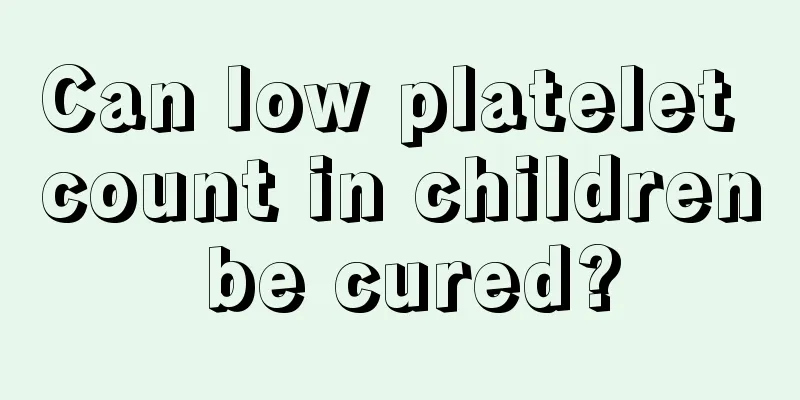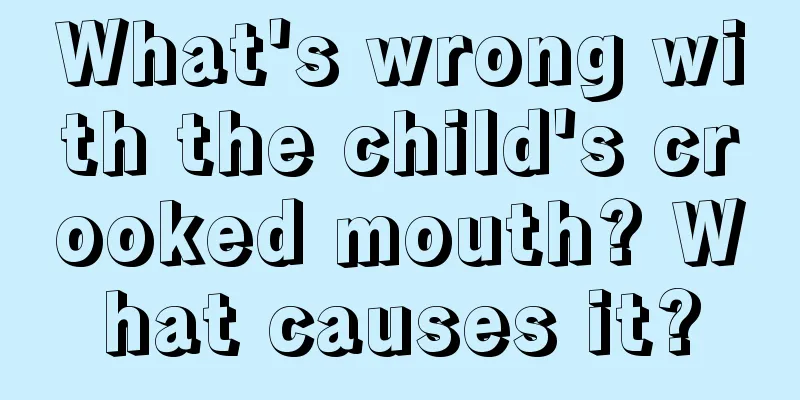At what age do children usually start to change their teeth?
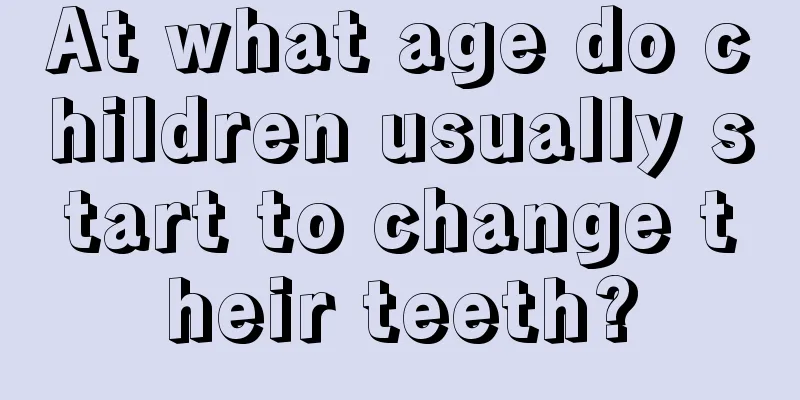
|
The baby's growth is very fast, and the mother also wants to record the baby's daily growth process and make it an unforgettable memory for the baby. Babies will go through the stage of tooth replacement during their growth, and mothers all want to know at what age children usually start to replace their teeth. Next, let’s learn about how children generally change their teeth in their teens. When the teeth are replaced, the permanent teeth erupt from below or inside the deciduous teeth. The erupted permanent teeth are the size of adult teeth. Mild crowding and twisting are normal, and the alignment can be adjusted automatically with the eruption of adjacent teeth and the growth and development of the jaw. As long as it is not cross-tooth (i.e. overbite), correction is generally not required, but regular observation should be performed, and the longest period should not exceed half a year. If the deciduous teeth are still not aligned properly after they are completely replaced, you should see a doctor promptly to avoid difficulties in correction due to delayed treatment. For children aged five or six, tooth replacement may be more important than letting them play the piano, roller skate, or learn arithmetic. Because the newly grown permanent teeth will accompany them almost throughout their lives and are related to their diet, appearance, and even psychology. Health care during the tooth replacement period is very important and is directly related to whether the child’s teeth will be neat and beautiful in the future. Therefore, parents should strengthen the care of their children during this period so that their children can have good teeth. There is a certain time and order for the shedding of deciduous teeth. Deciduous teeth that should fall out but don't are called retained deciduous teeth, and the consequence is often that permanent teeth cannot erupt in the normal position. Most children begin to change their teeth at the age of five or six, some start at the age of four, and some children may not lose their first deciduous tooth until the age of seven. Tooth loss usually starts with the two lower front teeth, followed by the two upper front teeth. The most common situation is that the lower front permanent teeth grow on the inside of the deciduous teeth, and the upper front permanent teeth grow on the outside of the deciduous teeth, making it look like double-layer teeth. What should we do in this situation? We should take the child to the hospital as soon as possible to remove the retained deciduous teeth and make room for the permanent teeth to erupt. After knowing at what age children usually change their teeth, mothers don't have to worry about their children's sudden tooth change. However, mothers do not need to worry if their children do not change their teeth when they are supposed to, because there may be some differences depending on the physical constitution of the child. So I hope the above suggestions will help mothers to record their baby’s growth process more carefully. |
<<: Why does my baby sweat coldly when sleeping at night?
>>: How to deal with a high fever in children?
Recommend
What to do if a newborn baby has small pimples on his face
Many newborns have small pimples on their faces. ...
What medicine should I use to remove scars from burns on children?
Most children are naughty in life, so parents sho...
What to use to reduce fever in children
When children have a fever, parents are very anxi...
What is the normal ear temperature for a newborn baby?
Newborns may have various problems, so parents ne...
Symptoms of precocious puberty in little boys
There are many reasons for boys' precocious p...
What should I do if my 7-year-old child has poor memory?
Children have poor memory and cannot concentrate ...
Rehabilitation training methods for premature infants
Premature babies are very common. After birth, su...
What to do if children cough in summer
Summer is the peak season for many diseases. If b...
Why does my child have no snot but keeps sniffing his nose?
Children are prone to runny noses. Parents need t...
Nine-month-old baby development standard indicators
Ten months of pregnancy and one day of delivery e...
How to deal with the baby always spitting up milk during confinement
Spitting up milk is a very common phenomenon in b...
What causes stomachache in a 10-year-old child?
Although stomachache is not a serious disease, it...
Child's head is sweaty and his hands and feet are cold
If a child has sweat on his head and cold hands a...
What is the most suitable temperature for babies to drink water?
After the baby is born, many mothers are in a pan...
Why does my baby have a hoarse cough?
For young parents, the baby's weak resistance...
